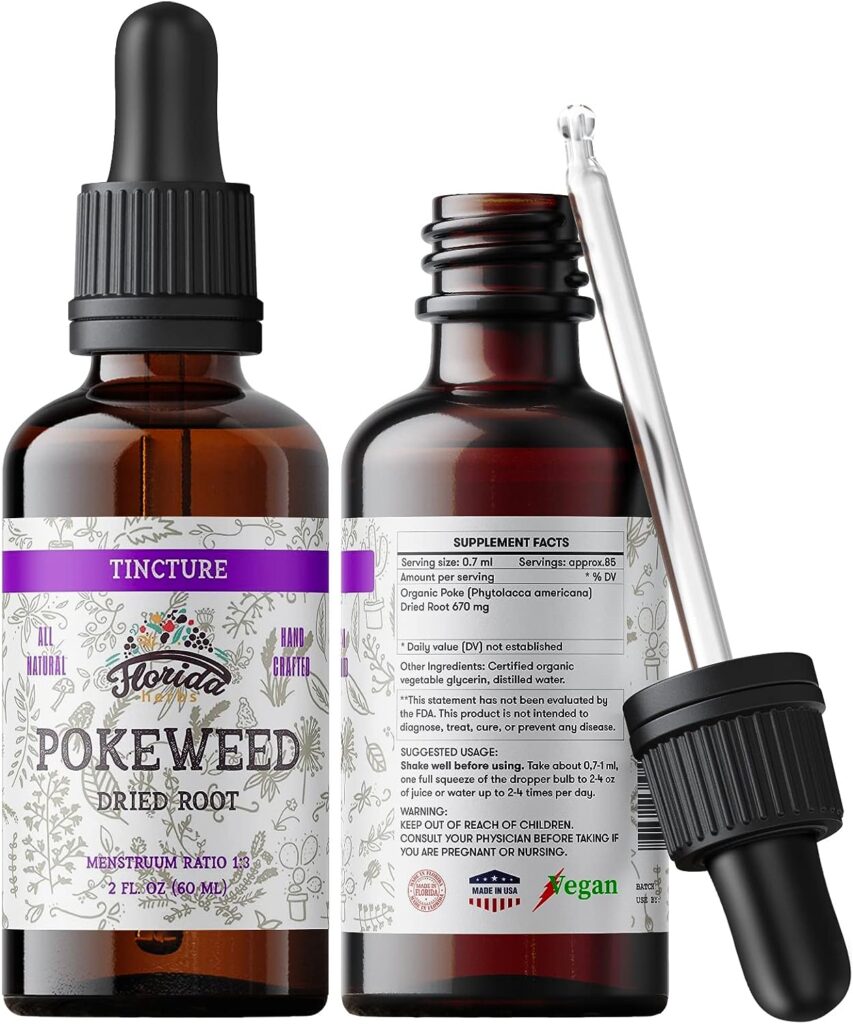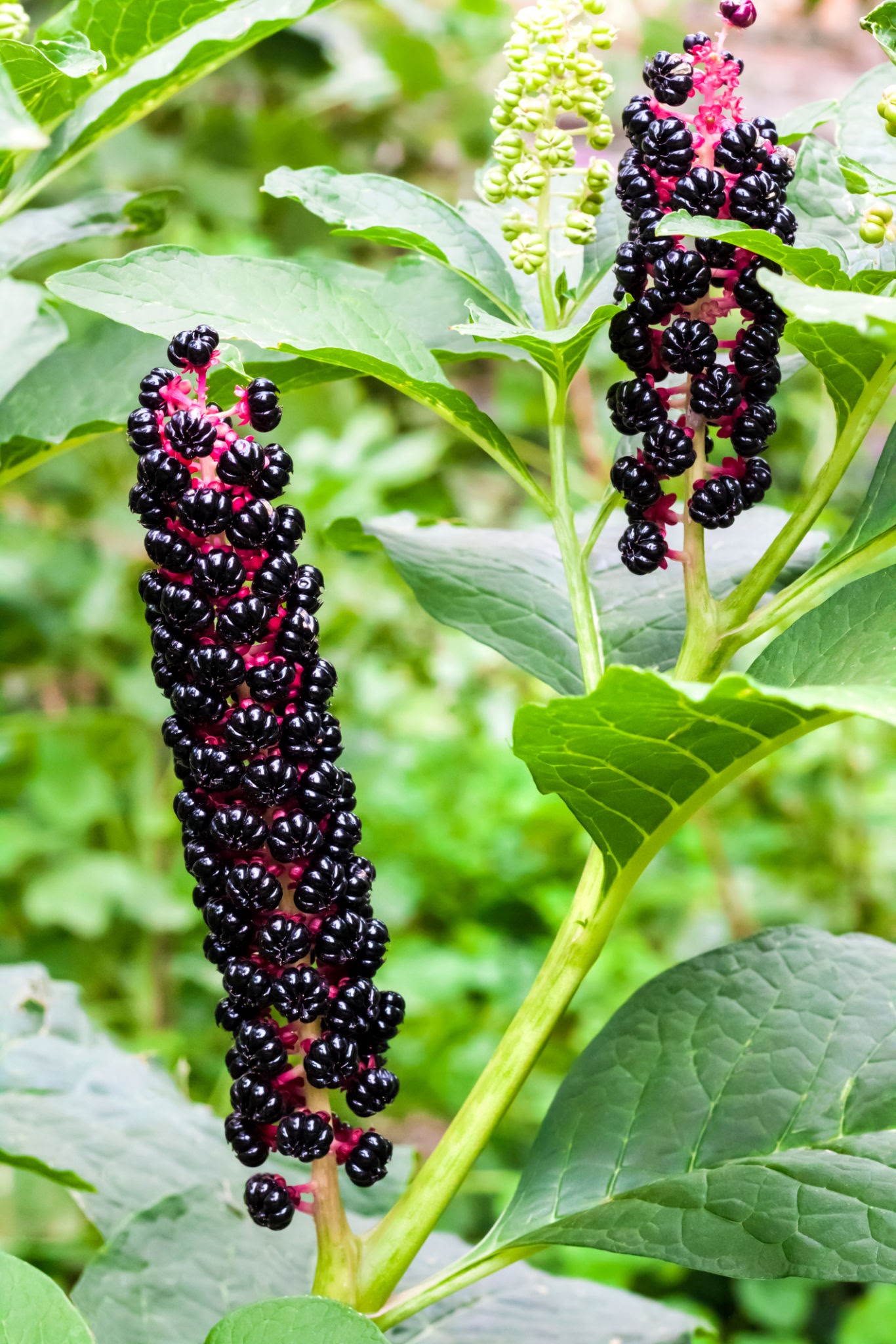Phytolacca Decandra (Phyt.) is a homeopathic remedy derived from the root of the pokeweed plant, Phytolacca americana. This potentized remedy has demonstrated significant efficacy in addressing a spectrum of health issues, with a primary focus on conditions involving glands, joints, and connective tissues.
The hallmark of Phytolacca is its profound impact on glands. Affected glands typically exhibit signs of inflammation, heat, and swelling. This makes Phytolacca a valuable therapeutic choice for various gland-related disorders. It is particularly indicated in cases of mumps, where swollen and inflamed salivary glands are a prominent feature. Similarly, for individuals experiencing mastitis, an inflammatory condition of the breast tissue often associated with breastfeeding, Phytolacca can offer relief from the pain and discomfort.

Connective tissue, especially ligaments and tendons within joints, is another domain where Phytolacca showcases its therapeutic prowess. People requiring this remedy often complain of pervasive soreness that seems to afflict multiple areas of their body, including the eyes, breasts, kidneys, neck, shoulders, back, forearms, and knees. This widespread discomfort can manifest as nocturnal aggravation and is exacerbated by exposure to cold weather. The nature of pain is dynamic, with sensations that may shift or present as sudden, shooting stabs or stitches.
In the realm of discharges, if present, Phytolacca-typified secretions are typically tough and stringy. This distinctive quality aligns with the remedy’s broader characteristics.
Psychological Presentation
On a mental-emotional level, Phytolacca may be indicated for individuals who experience weeping episodes during their menstrual periods. Additionally, it is notable for those who find eating arduous due to the painful effects of swollen tonsils or quinsy, a severe throat condition. This characteristic can provide valuable diagnostic guidance for homeopathic practitioners.
Cranial
Phytolacca presents a distinctive connection to sinusitis, which makes it a relevant consideration in cases characterized by sinus inflammation. Moreover, in terms of auditory function, the remedy showcases an intriguing symptom – heightened hearing sensitivity during headaches, particularly accentuated on the right side. This subtle yet specific indicator contributes to the remedy’s diagnostic profile.

Teeth Symptoms
Phytolacca also interacts with the dental realm. Individuals for whom Phytolacca is indicated often exhibit a proclivity to bite or clench their teeth together. This unique dental characteristic underscores the remedy’s broad impact on various physiological systems.
Throat Symptoms
Within the throat, it is indicated in acute or recurring tonsillitis cases, particularly when the tonsils display an inflamed, dark-red or bluish-red appearance that tends to be more pronounced on the right side. Additionally, the presence of white spots on swollen and inflamed tonsils aligns with the remedy’s distinctive symptomatology.
Breast Symptoms
The breast serves as another focal point for Phytolacca’s therapeutic action. It is notably useful in cases of premenstrual breast discomfort, characterized by breast swelling and pain. The breasts may develop stony-hard, swollen lumps, and this may escalate to mastitis, an inflammatory condition of the breast tissue. The remedy’s influence extends to breastfeeding-related pain, where breast discomfort radiates across the entire body during nursing.

Musculoskeletal Symptoms
The Phytolacca remedy is particularly valuable for addressing pain localized at the sites where tendons attach to bones, showcasing its influence on connective tissues. Night-time bone pains and rheumatic discomfort during cold, wet weather further emphasize the remedy’s impact on the musculoskeletal system. Additionally, Phytolacca’s prescription gains significance in cases of rheumatic manifestations following tonsillitis, substantiating its role as a multi-dimensional remedy.
In summary, Phytolacca Decandra exhibits a diverse clinical application, spanning from cranial and auditory symptoms to throat conditions, breast-related issues, and musculoskeletal discomfort. Its symptomatology aligns with its broad range of action, rendering it a valuable tool within the spectrum of homeopathic remedies.
